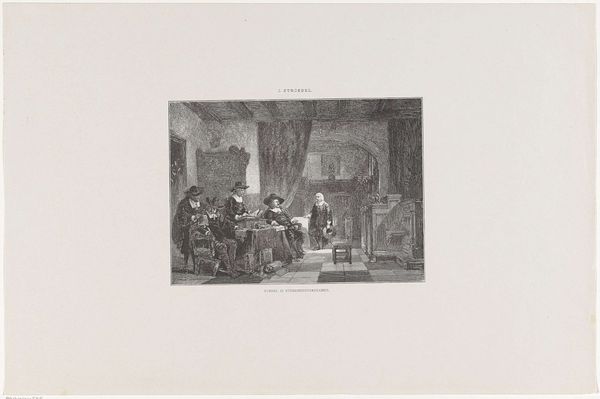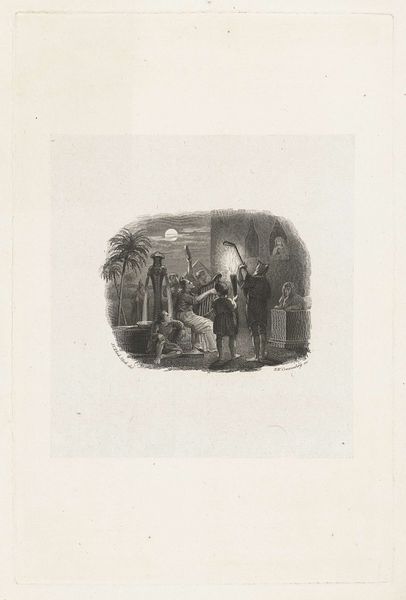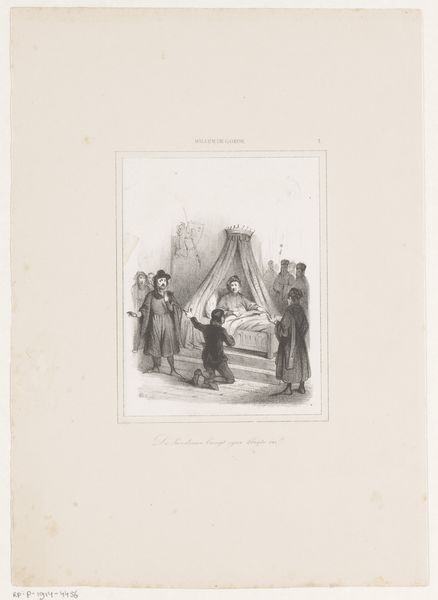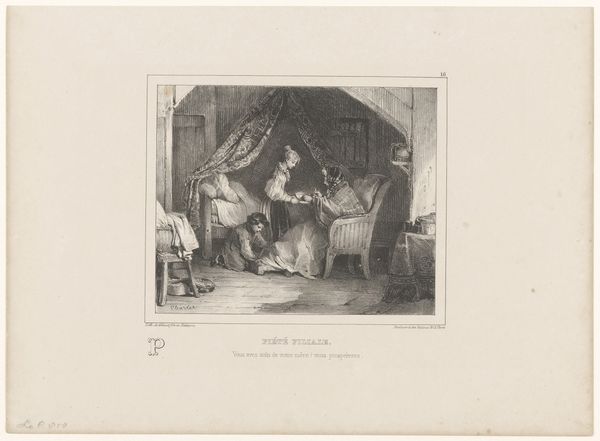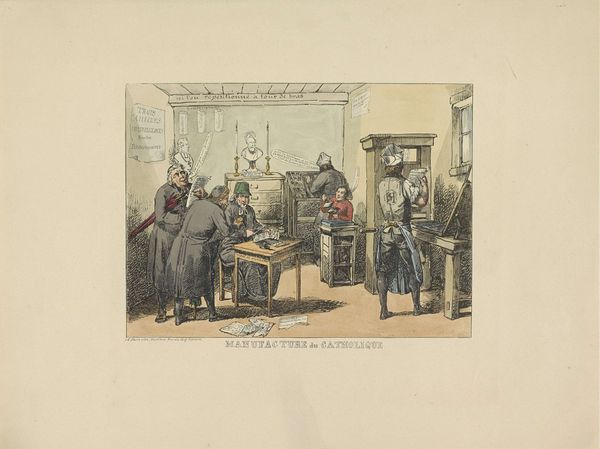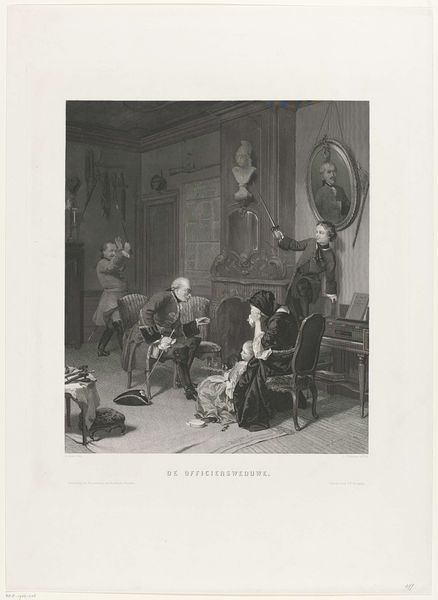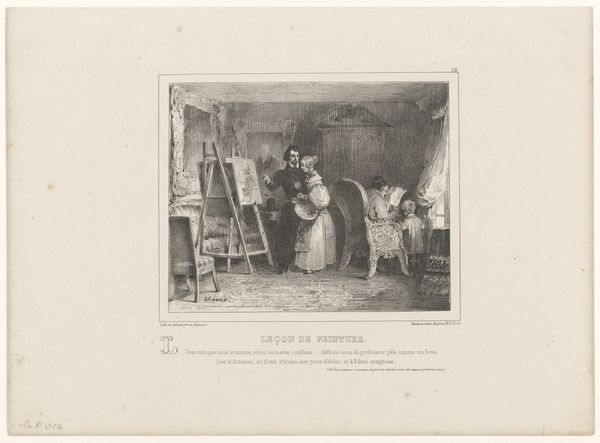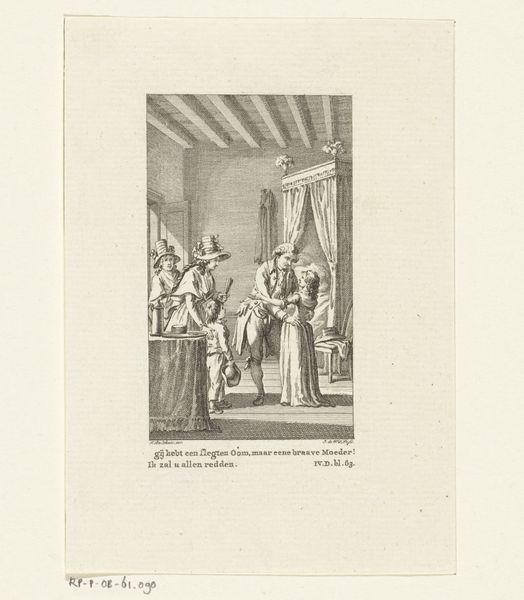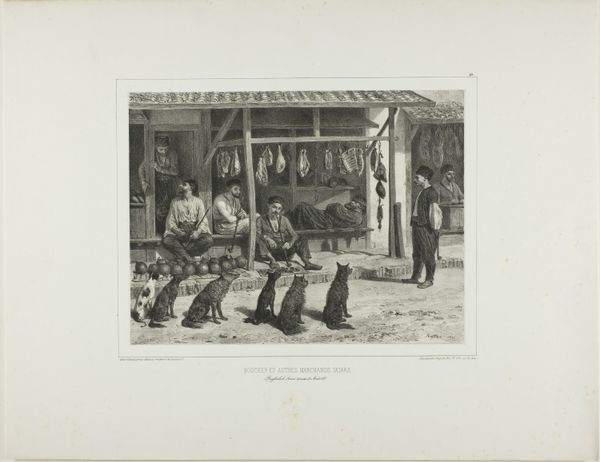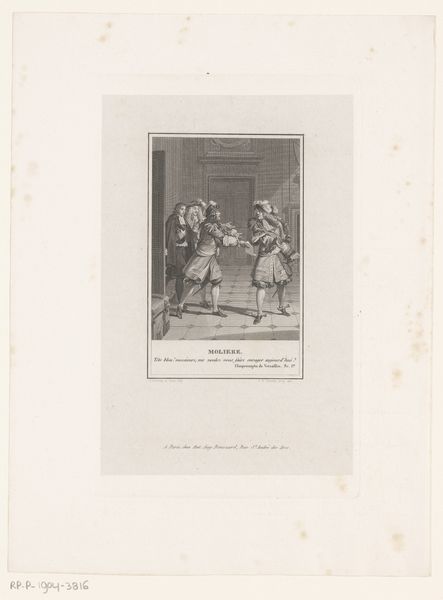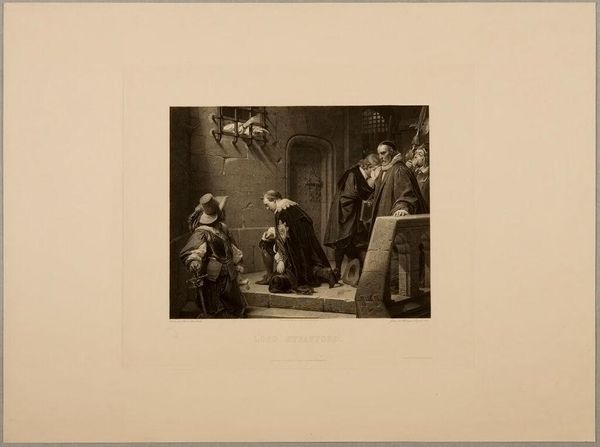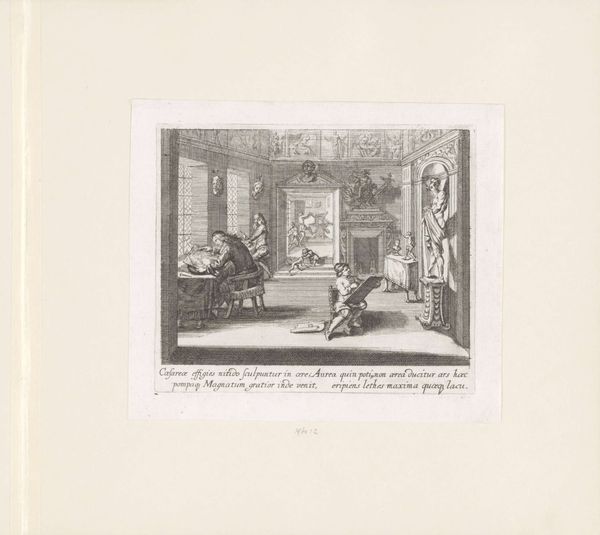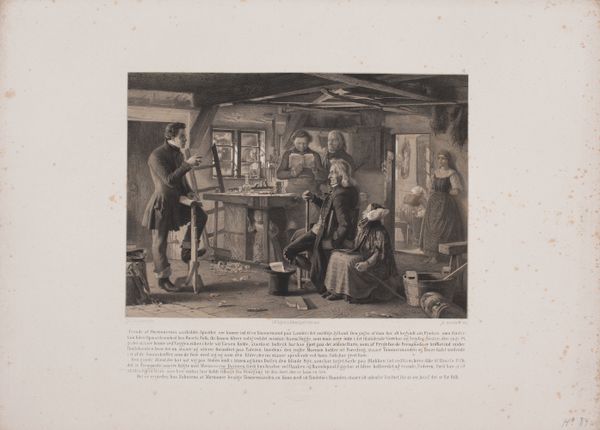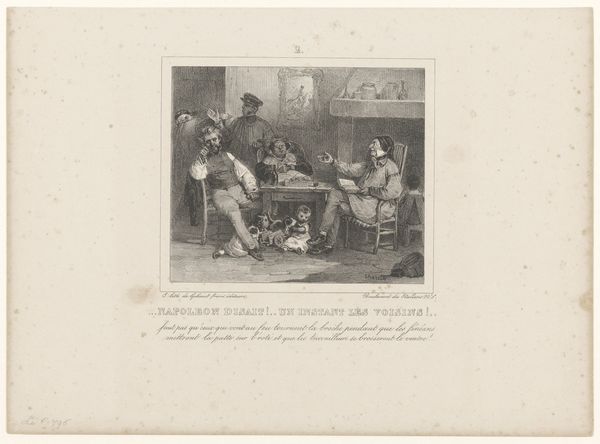
print, engraving
#
narrative-art
# print
#
old engraving style
#
genre-painting
#
history-painting
#
engraving
Dimensions: height 270 mm, width 364 mm
Copyright: Rijks Museum: Open Domain
Rombertus Julianus van Arum made this print called "Farewell of Lamoraal, Count of Egmond" sometime in the 19th Century. It depicts a nobleman saying goodbye to his family. Van Arum was working in a Netherlands that was looking back to the early modern period as a time of national formation. Lamoraal, Count of Egmond, was a key figure in the early stages of the Dutch Revolt against Spanish rule, and his execution in 1568 made him a martyr for the Dutch cause. The print romanticizes the nobleman’s sacrifice. It creates meaning through references to Dutch history and the visual codes of 19th-century sentimentalism. Look how Egmond consoles his wife, for example. To understand the print better, we can research popular historical narratives and the artistic conventions of the time. The print's meaning is contingent on its specific socio-political context.
Comments
No comments
Be the first to comment and join the conversation on the ultimate creative platform.
